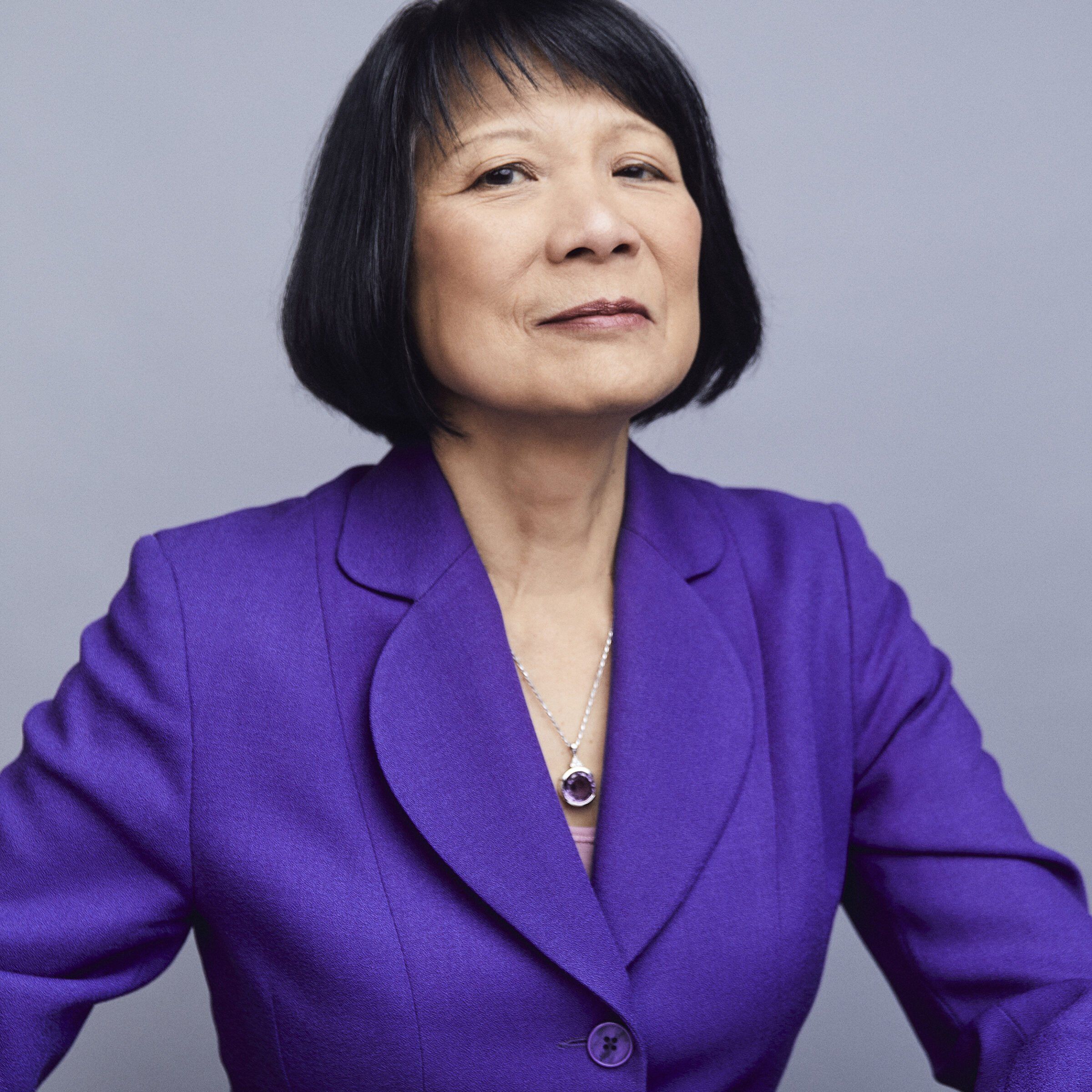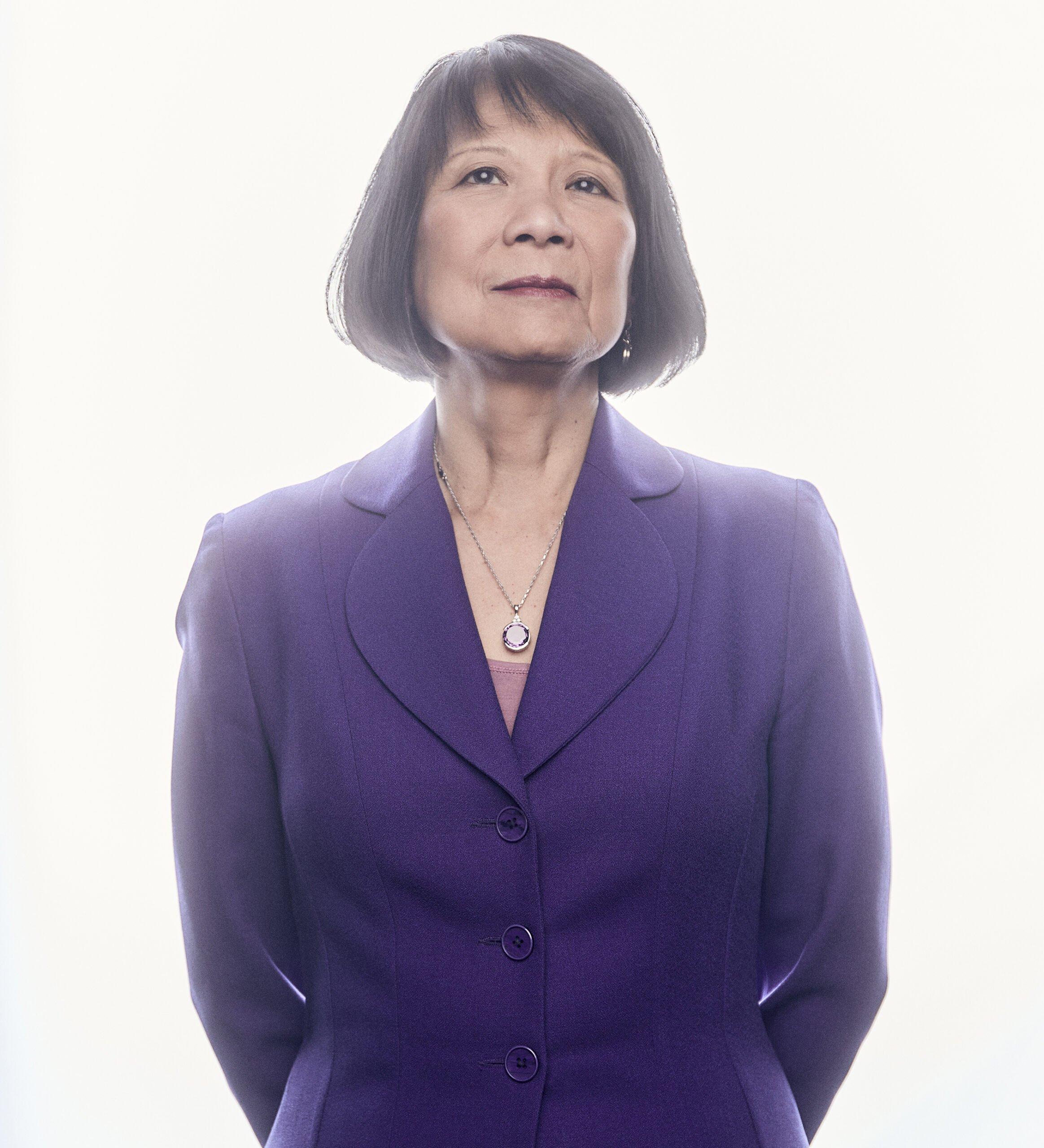The Power List: Olivia Chow
Unwilling to see her city decline, our No. 1 political newsmaker pressured all levels of government to step up. She has the money to show for it.

Share
April 1, 2024
Lately, a swirling mix of pressure points—unforeseen pandemic costs, historic immigration highs, scarce housing supply, an uptick in violent crime—has frayed tensions between Toronto and the feds. The city receives just nine cents of every federal tax dollar paid yet maintains 60 per cent of Canada’s core public infrastructure. In recent years, Toronto has also shouldered much of the burden of affordable housing, once a federal file. For Olivia Chow, the onetime NDP MP elected mayor of Toronto last July, the costs of that lopsided arrangement have more than manifested in the streets of Canada’s largest city.
For one, she inherited a $1.8-billion deficit, spurred on by a tax-averse council led by her conservative predecessor, John Tory. One in 10 Torontonians is now a food bank user, the transit system is at the end of the line, so to speak, and churches have morphed into de facto shelters. Chow’s seen it all first-hand. “In the past, it’s always been, ‘Where can we save more funds?’ But, at some point, when your service deteriorates so much, you have to say, ‘No, we need to get back on track. We need to invest again.’ ”
What has set Chow’s short tenure apart is her ability to close big-ticket deals quickly, bolstered by a time-honoured, seemingly un-Chow-like strategy: aligning with old rivals to play hardball with old friends. Last November, months after predicting her victory would be an “unmitigated disaster,” Ontario Premier Doug Ford engaged in a smiley photo op with Chow to celebrate their so-called “New Deal.” Chow dropped the city’s opposition to Ford’s highly contested redevelopment of Ontario Place and, in exchange, the province agreed to upload billions of the city’s costs, including maintenance of the Gardiner Expressway, $758 million in transit funding and $600 million in shelter support. The catch? Hundreds of millions of Ontario’s funds were contingent on Ottawa matching them. “When I first came into office last July, the federal government said, ‘Go talk to the province,’ ” Chow says. “So I said, ‘Well, I did. I got the New Deal. Your turn now!’ ”
In January, less than two months after Finance Minister Chrystia Freeland promised Toronto $1.2 billion to build rental homes, Team Chow applied pressure once again. After proposing a whopping 10.5 per cent property tax hike for city dwellers—the largest in 25 years, and a polarizing move in our highly inflated times—Shelley Carroll, Chow’s budget chief, threatened to impose an additional six per cent “federal impact levy” if the federal government didn’t fork over $250 million to offset the costs Toronto had incurred to shelter thousands of new asylum seekers. (Chow says half of the people in Toronto’s shelter system are now refugee claimants, a figure that has doubled since last summer.) Weeks later, the feds gave Chow and co. just about everything they wanted: $362 million for refugee support nationally, with roughly $162 million earmarked for Toronto, plus a down payment of $40 million to tide the city over until the federal budget dropped this spring. Ontario then chipped in $600 million more.

Chow’s lucrative, partnership-heavy Year One, which she grades a “B-plus,” hasn’t been detractor-free, however. Ontario Place conservationists are miffed. In November, Chow engaged in a public tit-for-tat with Immigration Minister Marc Miller on X over the city’s lack of warm beds. She even caught flak from Liberal MP Yvan Baker, who called Chow’s proposed property tax hike—which settled at 9.5 per cent—“outrageous.” Chow says her calls for everyone to step up are not personal. “It’s not that the federal government has neglected us or not done their job—it’s just that things have grown desperate. I’m saying: ‘We need you.’ ”
Chow is also eager to show her math to citizens who may chalk her recent run for money up to garden-variety political buck-passing. Last summer, for the first time in Toronto’s history, she opened the city’s budget process to the public. “When you open the books and say, ‘I’m not making these figures up. Here’s what we do with the nine cents of every tax dollar you pay,’ people say, ‘Oh, okay. We get it.’ ”
As she enters Year Two, Chow shows no signs of slowing her financial revolution. She’s expediting new housing options, like laneway and garden suites, and upgrading the city’s subway trains. But she’ll also be team-working with her colleagues from Canada’s Big City Mayors’ Caucus on a reorganized national tax structure—an improvement on the funding discrepancy that, the mayors say, shortchanges cities that are up against unprecedented expenses. (Chow is particularly irked that Toronto will miss out on all that sweet Taylor Swift HST come November, when the singer’s show rolls into town.) The group are already brainstorming strategies and sharing inspiration via their Big City Mayor Caucus WhatsApp group. “These mayors offer some good ideas,” she says. “We all say, ‘Okay, maybe I’ll try that, too.’ ”
This story appears in the May issue of Maclean’s. You can buy the issue here or subscribe to the magazine here.